Our Latin America programs officer, Normand Comte, and our communications and public relations advisor, Romina Acosta Bimbrera, were in Ecuador at the end of November to visit communities and observe the work of our local partner, the Centro de Desarrollo, Difusión e Investigación Social (CEDIS, Centre for Development, Dissemination and Social Research)
By Romina Acosta Bimbrera, Communications and Public Relations Advisor
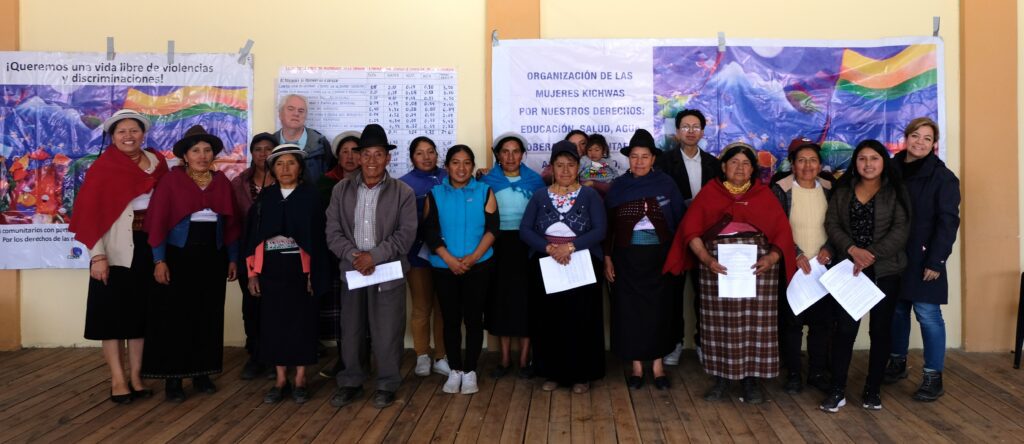

Ecuador’s Law on the Organisation and Regulation of Communes has been in force since 1937. It establishes how communities are to be governed but does not always take into account the situations and needs of communities. In 2022, a member of the National Assembly tabled a request to reform it (see document in Spanish) by including recognition of the collective rights of communes and communities, which have been enshrined in the Ecuadorian Constitution since 2008.
Throughout this year, CEDIS has been holding consultations to enable women to reflect on what should be included in this reform, especially about gender-based violence and their role in society as Indigenous women. We had the opportunity of observing one of such consultation in the community of Palacio Real in the province of Chimborazo.
The role of pre-Columbian communities
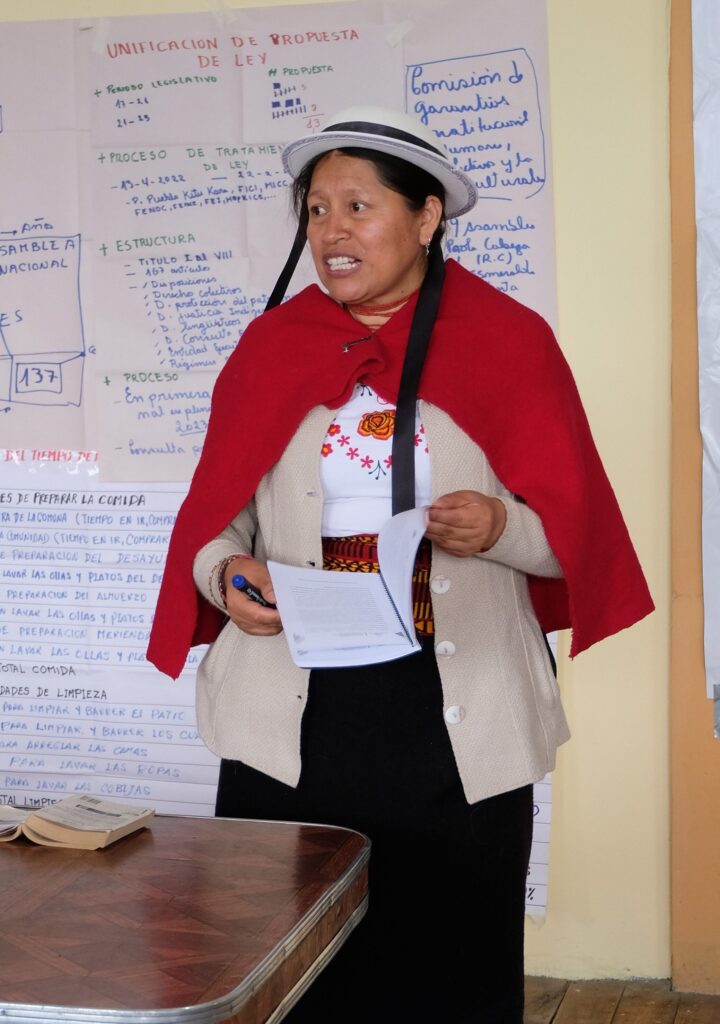

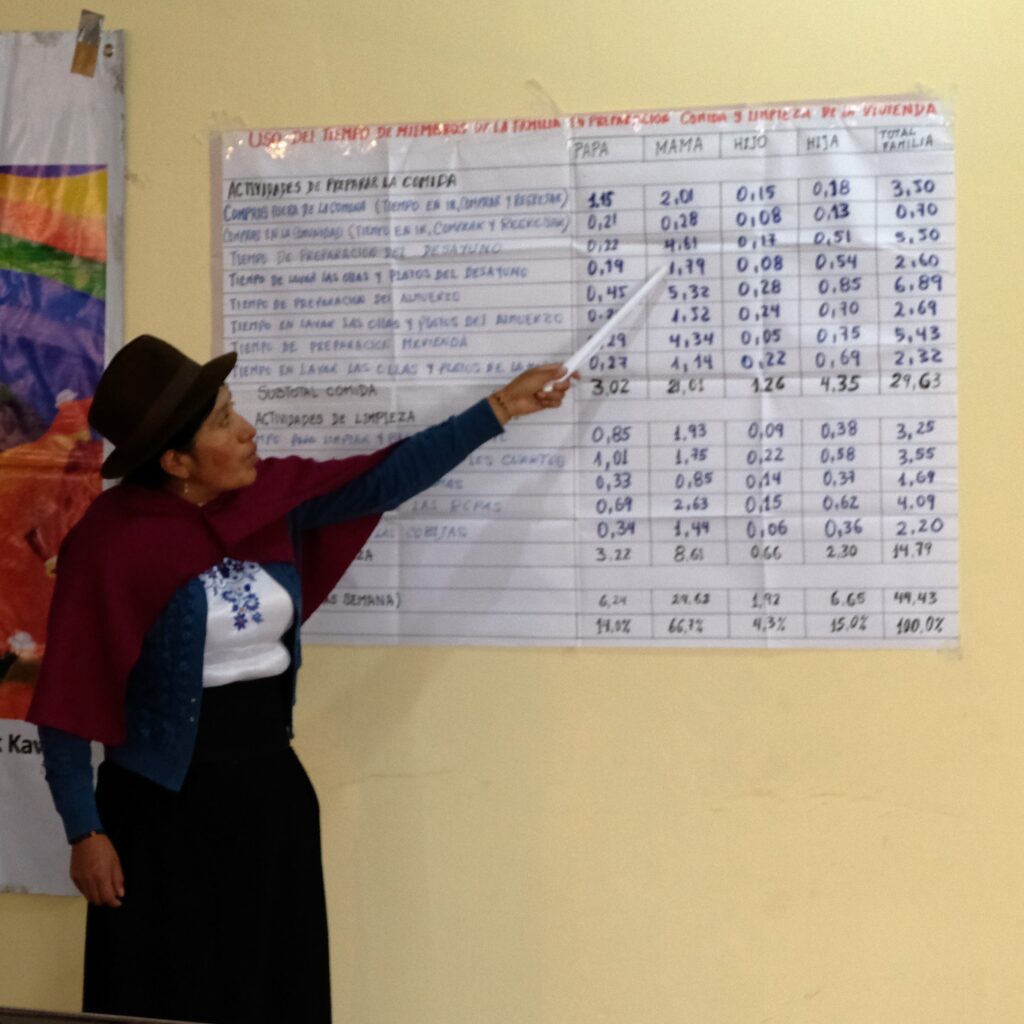

Cristina Cucurí has been a member of the CEDIS team for several years. She oversees training at the consultations, which are held in Spanish and Kichwa. She began the meeting by reminding participants that the place of women and men had been more egalitarian before colonization. Women were not only in charge of household chores, but also took part in village decision-making. Why was this no longer the case?
Asencia Shucad, one of the participants, replied,
“We women don’t value ourselves. We work but don’t get paid, even though we work harder and longer than our husbands.”
This is indeed the case. A January 2023 survey by the Faculty of Economics at the Pontificia Universidad Católica del Ecuador (Catholic Pontifical University of Ecuador) in Quito found that mothers spent around 29.62 hours a week on food preparation and housework activities, whereas fathers spend just 6.24 hours. The trend was similar for girls in the home, who spent 6.65 hours, versus boys, who worked only 1.92 hours.
Women’s needs in the communities
Cristina then introduced participants to certain articles of the current law. They were reviewed and simplified to make them accessible to all participants. She then asked: Why have women been ignored in this law? What would you like to see included in the reform? How would you do it? The participants were then divided into three groups and asked to brainstorm and share their answers.
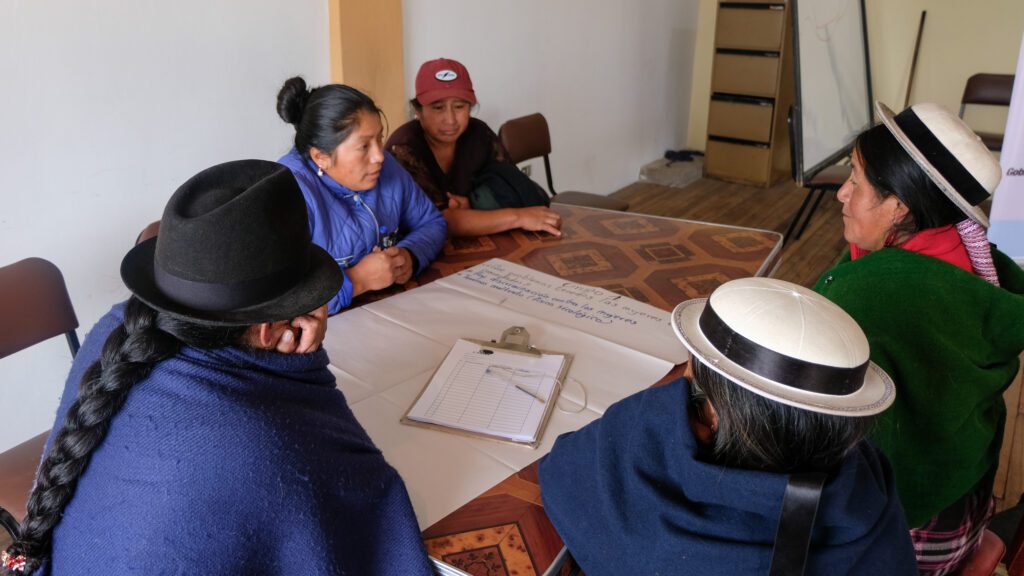

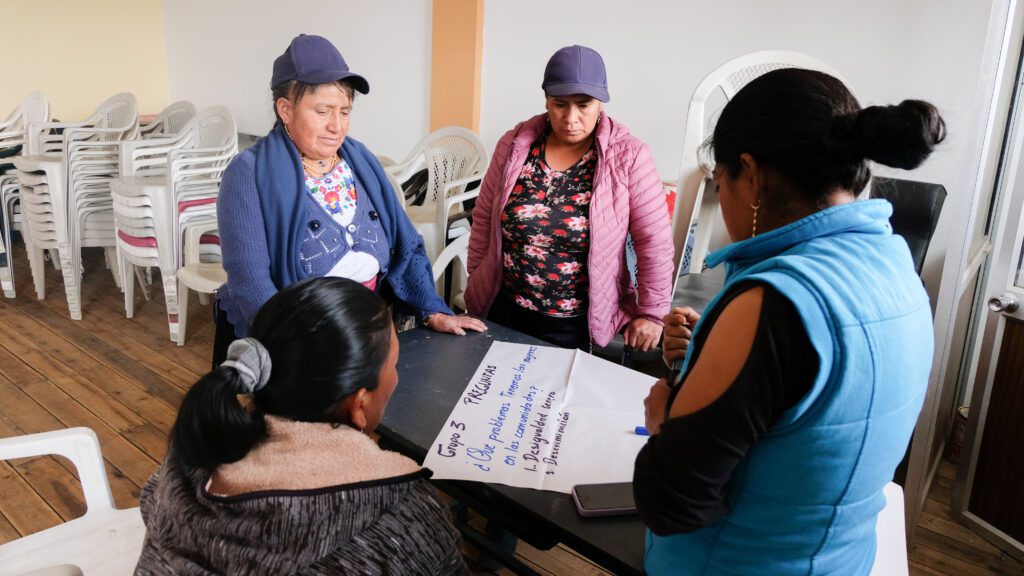

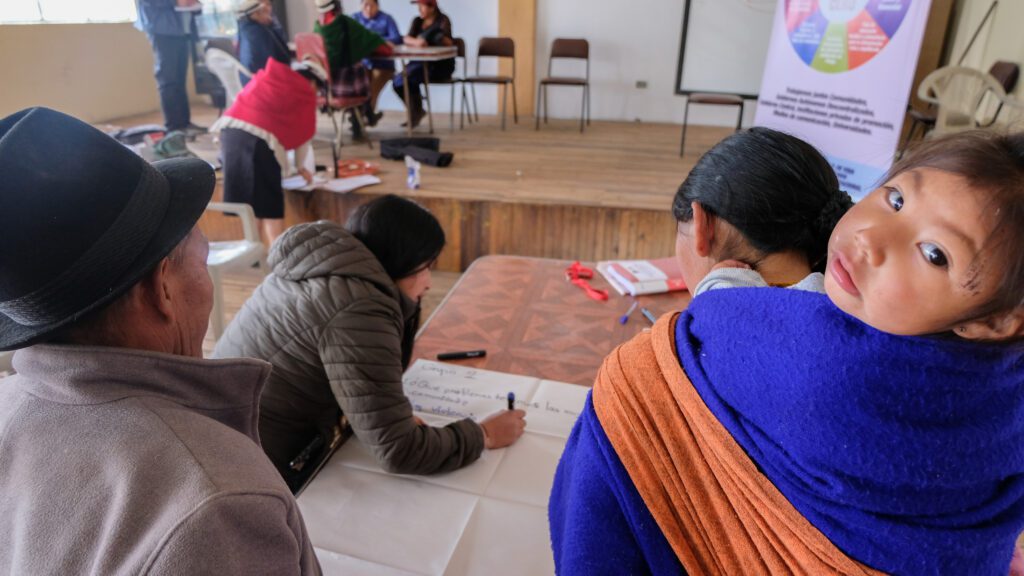

At the end of the exercise, communities put forward various issues including pollution, a lack of government support, new diseases linked to agricultural chemicals and the increase in physical and psychological violence against women. They also spoke of the lack of consideration in the law for single mothers and the elderly, who are often obliged to handle mingas (chores, in Kichwa) and perform the same tasks as others with no regard for their physical condition or time constraints.
Solutions from different horizons
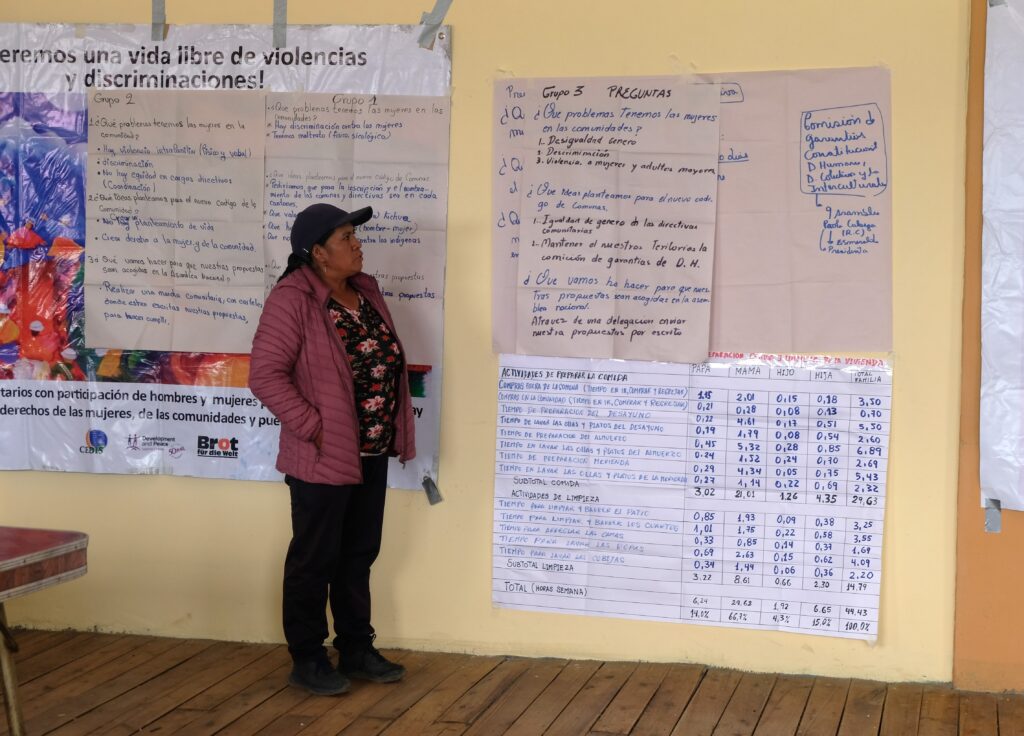

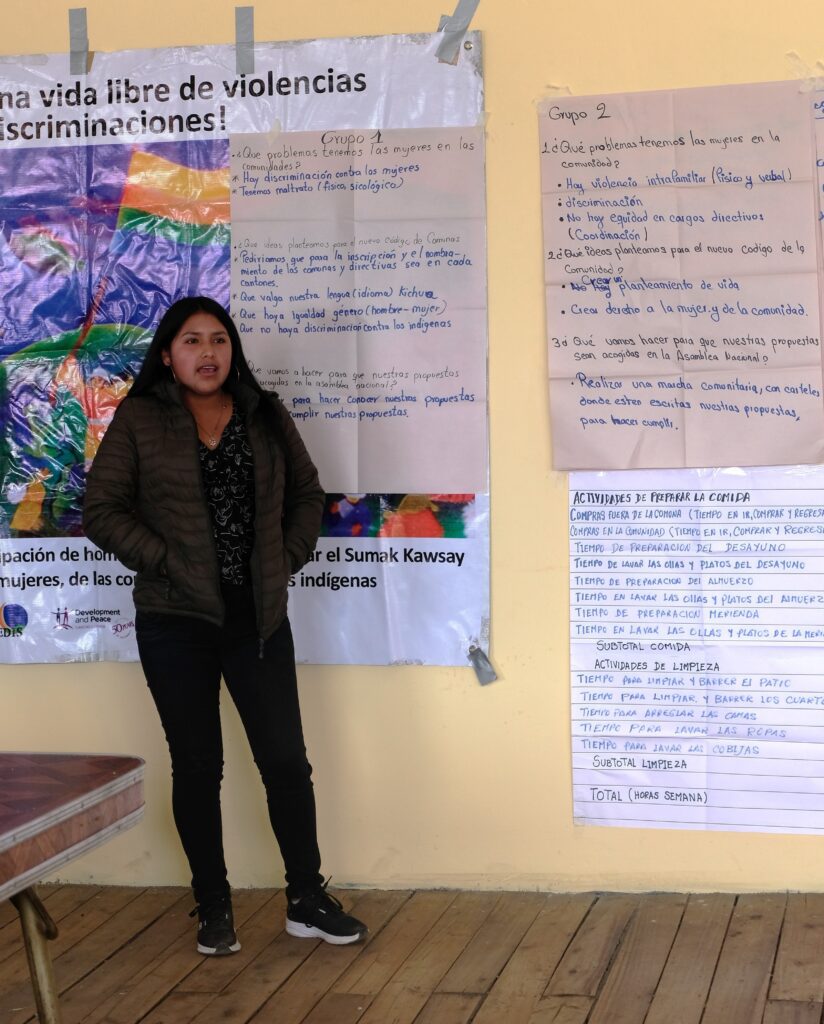

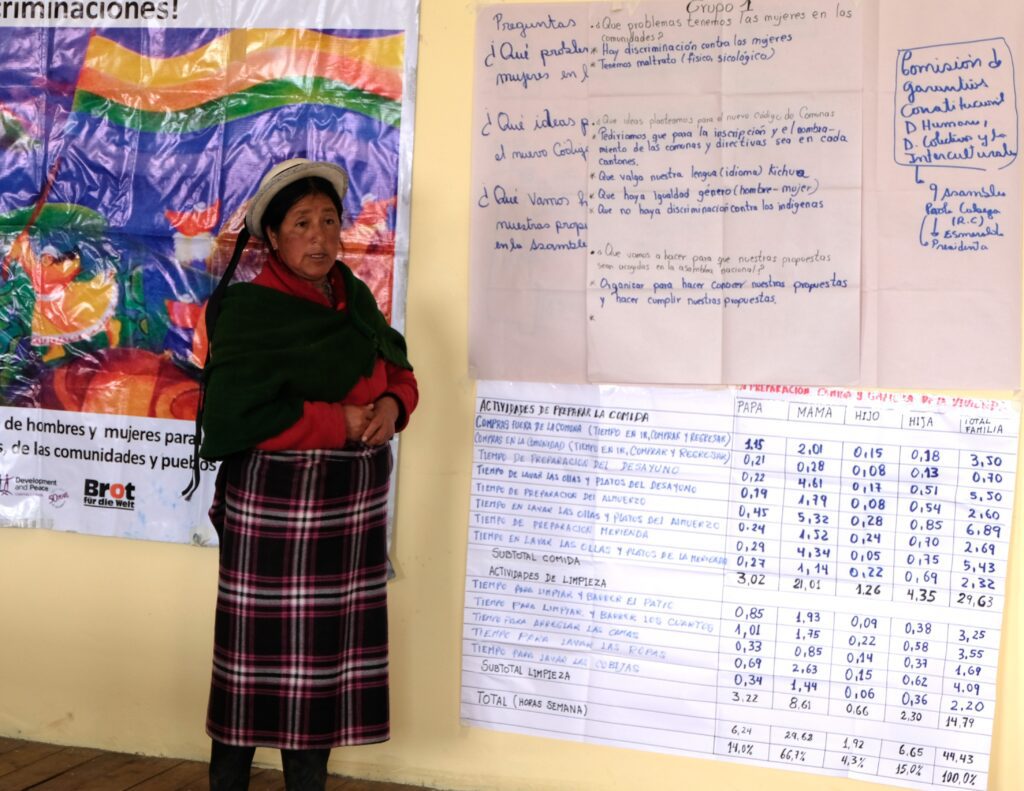

So, how did participants propose to tackle these problems?
A representative from each of the three discussion groups took the floor and presented their solutions. It was interesting to note not only the age difference between participants, but also that they shared the same values and convictions.
Participants put forward several proposals, including, notably, securing greater representation for women in positions of power, so that they may be better defended. Also mentioned was women’s desire more recognition for their ideas, which are often ignored. Indeed, participants said, when proposed by a man with a few additional flourishes, the same idea suddenly becomes a good one accepted by all!
How to make these voices heard? The participant’s proposed mobilization plan included sending their demands in a letter members of the National Assembly, and taking to the streets in a big march with placards bearing the proposals froms the consultation. The aim was to assert to society and government their rights to exist, to speak out and to make decisions.
Closing the meeting, CEDIS director José Miguel Milán reminded the participants,
“We are human beings, equal before God and the law, and we have the same rights. However, governments don’t see it that way and ignore us.”
That is why it is important for marginalized Ecuadorians to take part in future government consultations to make their voices and rights heard.
In this season of sharing, please give generously so that our partners can continue helping women everywhere to flourish and assert their rights.

